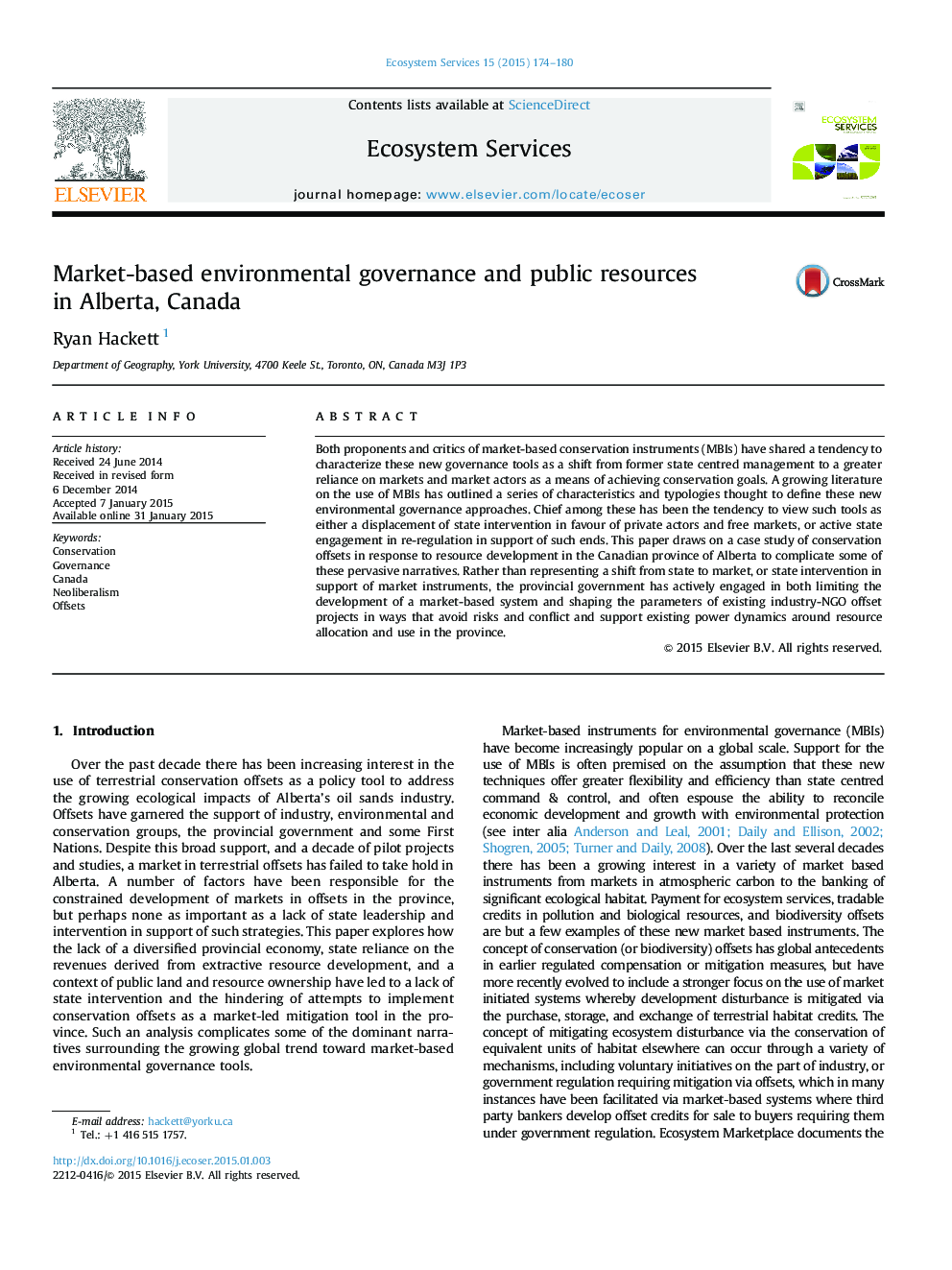| Article ID | Journal | Published Year | Pages | File Type |
|---|---|---|---|---|
| 6556714 | Ecosystem Services | 2015 | 7 Pages |
Abstract
Both proponents and critics of market-based conservation instruments (MBIs) have shared a tendency to characterize these new governance tools as a shift from former state centred management to a greater reliance on markets and market actors as a means of achieving conservation goals. A growing literature on the use of MBIs has outlined a series of characteristics and typologies thought to define these new environmental governance approaches. Chief among these has been the tendency to view such tools as either a displacement of state intervention in favour of private actors and free markets, or active state engagement in re-regulation in support of such ends. This paper draws on a case study of conservation offsets in response to resource development in the Canadian province of Alberta to complicate some of these pervasive narratives. Rather than representing a shift from state to market, or state intervention in support of market instruments, the provincial government has actively engaged in both limiting the development of a market-based system and shaping the parameters of existing industry-NGO offset projects in ways that avoid risks and conflict and support existing power dynamics around resource allocation and use in the province.
Related Topics
Life Sciences
Agricultural and Biological Sciences
Agricultural and Biological Sciences (General)
Authors
Ryan Hackett,
